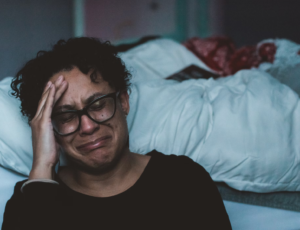 Dorothy Roberts, author of Torn Apart: How the Child Welfare System Destroys Black Families and How Abolition Can Build a Safer World.
Dorothy Roberts, author of Torn Apart: How the Child Welfare System Destroys Black Families and How Abolition Can Build a Safer World.
Dorothy Roberts’ PrimeTime 55+ profile
Published by Time Magazine, by Janell Ross.
When I caught up with Dorothy Roberts, a professor of law, sociology and civil rights at the University of Pennsylvania, she had just finished a packed book talk at Revolution Books, a small, aptly named bookstore in Harlem. The in-store audience, the event organizer told me, reached fire-code limits. Several people watched from chairs the store’s owners placed on the sidewalk, within earshot of a speaker and in view of a screen in the front window.
There’s a reason Roberts has such a large following: She has a track record of writing about social problems in ways that both researchers and laypeople recognize to be real. Her new book, Torn Apart: How the Child Welfare System Destroys Black Families and How Abolition Can Build a Safer World, applies that scrutiny to the American child-protective system—a web that Roberts believes doesn’t deserve that name. She argues that child-welfare workers are effectively punishing families, particularly Black families, because they are poor. (Only about 17% of children removed from their homes nationwide are in foster care because of allegations of physical or sexual abuse.) The problem intensified after Clinton-era welfare reform reduced direct aid to poor families, Roberts says; there are now major U.S. cities where 60% of Black children have had some form of contact with child-welfare officials.
In this conversation, which has been edited for clarity and length, as Roberts lays out a disturbing portrait of child welfare in an ostensibly free and wealthy nation, she also finds some evidence that there’s reason for hope.
TIME: What first brought you to the topic of government efforts to enforce child-welfare standards?
ROBERTS: I learned about the child-welfare system intimately when I was working on my book Killing the Black Body, which was published in 1997. At the time, I was doing research on prosecutions of Black women for being pregnant and using drugs. And that’s what led me to look into the child-welfare system. quickly discovered that Black children were grossly over-represented in the system. There was this huge racial disparity, which I then came to see as Black communities being targeted by what I’m now calling “family policing.”
In other words, it’s not just that there are statistical disparities. There are Black communities—especially segregated, impoverished Black neighborhoods—where there is intense concentration of child-welfare-agency involvement, and children are at high risk of being subjected to investigation, to being removed from their homes, to spending a long time in foster care, and for their parents rights to be terminated.
So basically, at every level of action that these agencies can take, there are racial disparities?
Oh absolutely. Disparities in every decision made in the scope of child-welfare proceedings, but also disparities in the bad outcomes for children as well. One of the most striking findings in a recent study is that more than half of all Black children will experience a child-welfare investigation by the time they reach age 18—53%. I mean, that is just an astounding amount of state intervention into the homes of Black children. But then Black children are also more likely than white children to be taken from their families and put in foster care. They’re more likely not to go to college after experiencing foster care, more likely to go to prison. So the outcomes are bad too.
Why are these disparities so pervasive?
I think that the main reason is because the system is designed to deal with the hardships of children who are disadvantaged by structural inequality—including structural racism—by accusing their parents and separating families. I’m saying it that way because some people will say, ‘Well, Black children are more likely to have all these interventions because they have greater needs.’ But, first of all, why do they have greater needs? And secondly, why is the response to their greater need this very violent, traumatic approach of family separation? It’s because of the design of the system to treat poverty in this way. And then also just as importantly, are the stereotypes about Black families that fuel this type of intervention.
How do stereotypes prompt child-welfare workers to remove so many Black children from their parents?
There are longstanding stereotypes that Black parents don’t really love their children, that it’s easy to separate the bonds of Black parents and children, that Black children are better off in the care of other caregivers—especially white caregivers. I could go down the list of all of the stereotypes that paint Black mothers as defective, as pathological, as neglectful, incapable of caring for their children. And those stereotypes influence people’s decisions about child abuse and neglect. There’s a whole slew of studies that show that doctors are more likely to suspect child abuse if the child is Black than white, with the exact same injuries. We could trace this back to the slavery era.
Walk us through that history.
Well, we have to go back to the origins of this. Right? the enslavement of Black people, when children of Black parents were considered the chattel property of their enslavers. The parents had no right to custody or to raise their children the way they wanted to. And that also meant the families could be separated at the whim of the enslaver for their economic convenience. Part of it also is the sense that children are better off away from their families, and that there isn’t a tight loving bond between Black children and parents. And so there’s less of a sense of the problem that happens from family separation. And I think that stems from the easy removal of Black children from their parents during the slavery era.
And also past that, going into the post-Civil War era and the apprenticeship system, where judges would order Black children to be returned to their former enslavers, on grounds that their parents were neglecting them. Even if you think about the Black “welfare queen,” the idea was she only had children to exploit white taxpayers. There are so many stereotypes and ideas about Black mothers and parents in general. I mean, the stereotype about the Black father is he’s not around at all. So all of those, I think, play into why we have a child-policing system today that investigates a large number of Black families and removes so many—one out of 10 Black children—from their home to be placed in foster care.
When I’ve reported on the child-welfare system in the past, officials would frequently say to me that they had made significant efforts to remove fewer children from their homes or to place children with extended family members. The idea that children of color need to be “rescued” or “civilized” by wealthier white families, they would often tell me, was racist, outdated, and had proved deeply damaging. Do you mean to say that in private, talking with other child-welfare insiders, the emphasis shifts?



